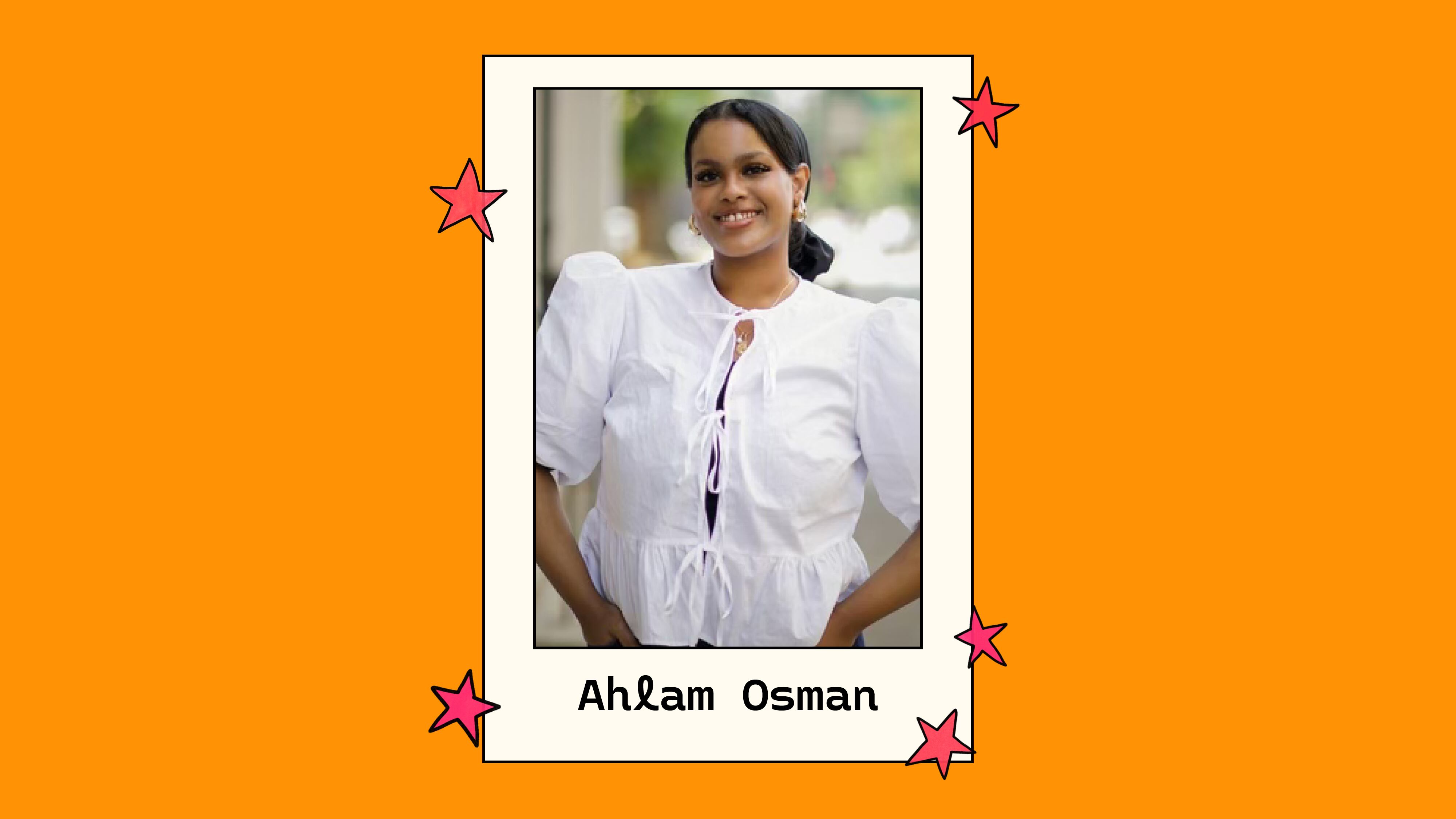Seeks to represent: District 3 (Southeast and Northeast Portland)
Age: 22
Pronouns: She/her
Job: Owner of Above GRND Coffee and program coordinator of the nonprofit Somali-Empowerment Circle
Fun fact: “I live and breathe matcha lattes.”
Ahlam Osman is one of the youngest people running for the City Council. At age 22, Osman already owns and runs her own coffee shop in Northwest Portland called Above GRND Coffee and works as a program coordinator for a nonprofit that supports Somalis living in Portland. (Osman’s parents are Somali refugees.) She’s also previously served on the Multnomah Youth Commission and on the Verde Action Board. Osman seeks to focus on climate protections, support for BIPOC-owned businesses, and reducing police overtime costs. We asked Osman why she wants to run for City Council.
Why are you running for office?
I’m running because I want to invest into the future of Portland. Growing up as the daughter of Somali refugees, I’ve seen how underrepresented communities disproportionately face issues like pollution, access to transportation, and economic inequality. I want to bring real change to the city—especially when it comes to addressing the climate crisis, supporting small businesses, and ensuring everyone’s voice is heard.
What are your top three priorities if elected?
- Tackling the climate crisis with bold, creative solutions.
- Empowering small businesses, especially those owned by immigrants and BIPOC.
- Making transportation more accessible, safe, and sustainable for everyone.
How would you foster economic growth in Portland?
I would focus on supporting local businesses by making it easier for them to get the help they need, whether that’s financial support, cutting through red tape, or offering mentorship. I also see many opportunities within the green job industry, and would like to prioritize this by investing in climate-friendly infrastructure that helps us grow in a way that’s good for both people and the planet.
The city of Portland is facing budget cuts next year. Where would you cut money from the current city budget? Please point to a specific program, bureau or place.
I think we need to look closely at bloated administrative costs, such as the PBB, and see where we can streamline things. I’d focus on cutting areas that don’t directly improve services like getting people housed, transportation, and public safety.
Where is the city currently wasting money, or is using money in a way you think is inefficient or unnecessary? Where is the bloat?
The Portland Police Bureau is an area where we’re seeing inefficiencies and overspending, especially on police overtime. We’re putting too much money into enforcement without addressing the root causes of crime, like poverty, mental health issues, and lack of economic opportunities. Instead of continuing to fund over-policing, we should reallocate resources toward community-based safety programs, mental health services, and violence prevention initiatives that actually create long-term safety and stability in neighborhoods.
What is the Joint Office of Homeless Services doing wrong, and what do you see as things that can right the ship?
I think there’s a lack of transparency, and the services aren’t getting to people fast enough. We need to focus on mental health, addiction support, and quickly getting people into stable housing. Working with grassroots organizations that already have trust in these communities could make a big difference.
Is the tax rate in Multnomah County (with Portland Clean Energy Fund, Preschool for All and supportive housing services taxes) too high, or at an appropriate level? If too high, what do you suggest be done about it?
The goals behind these taxes are really important, but we need to be careful that we’re not putting too much pressure on small businesses and low-income families. I’d push for more transparency in how the money is used to make sure we’re getting the most out of it before even thinking about raising taxes again.
What is the first piece of policy you would bring to the City Council?
I would advocate for adopting a policy that would not allow owners of fossil fuel and toxic materials storage facilities, and crude oil transport companies like Zenith, to come into our city, expand, or continue operations without meeting strict environmental regulations. These companies pose serious risks to our health, safety, and climate goals, and we need to hold them accountable by enforcing stronger emissions standards and transitioning toward clean, renewable energy alternatives that protect Portland’s communities, especially frontline and low-income neighborhoods. We are living in a climate crisis, we must prioritize climate resiliency and planning as it gets worse.
Beyond policing, what measures would you take to improve public safety in Portland neighborhoods, and where would you get the money for it?
We need to focus on violence prevention and mental health services, and programs like Portland Street Response. I’d shift some funding from police overtime towards community-based programs that engage with youth, provide economic opportunities, and focus on behavioral health. When people feel supported, they’re less likely to turn to violence.
What experience can you point to that you believe would make you a prudent policymaker on the City Council?
I’ve grown up in Southeast Portland as a first-generation immigrant, and my experiences have shaped how I see the city. I’ve worked on environmental justice issues, organized with local communities, and run a small business—so I understand the struggles people are facing and how to do hard things. I’m not a traditional politician, but I think that’s exactly what Portland needs right now—someone who’s been on the ground, has built relationships with the community, can work collaboratively and creatively, and cares about making things better for everyone.

